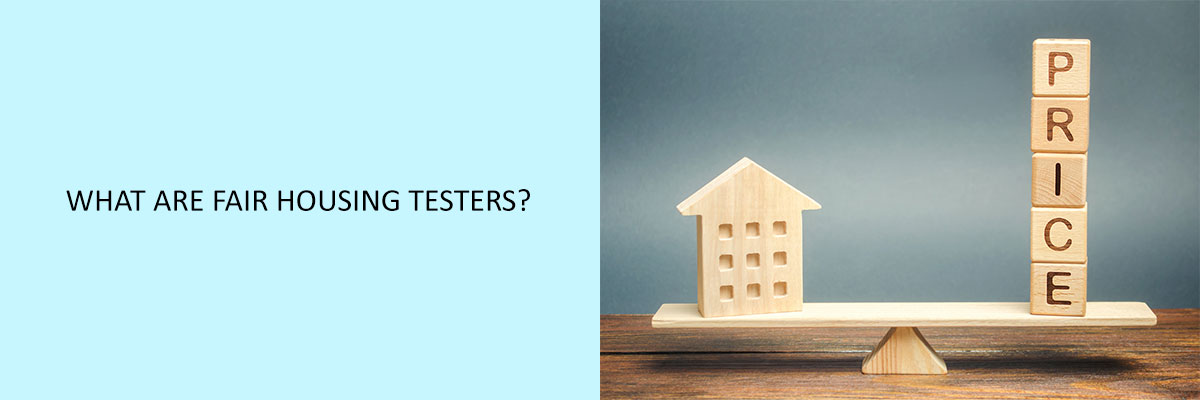Fair housing testers are generally individuals who, for altruistic reasons, test and record the racial, ethnic, and other aspects of rental housing. A person who tests housing, to be a fair housing tester, must have a high degree of knowledge of housing from both a practical and theoretical perspective. The tester should be able to find and interpret information, interpret and interpret data, analyze information, and make decisions about the housing.



Fair housing testers are a uniquely diverse group of people who get paid and trained to evaluate housing and real estate practices in the United States. Testing is a way to expose unfairness, a violation of civil rights. Fair housing testers are trained and certified to evaluate housing and real estate practices in the United States. Testing is a way to expose unfairness, a violation of civil rights.
The Fair Housing Act prohibits housing providers and landlords, and anyone else who uses a dwelling or a rental property to discriminate on the basis of race and ethnicity. The Department of Housing and Urban Development (HUD) was tasked with keeping track of housing as a way to prevent racial discrimination from occurring in the housing market. The Fair Housing Act (FHA) was the first federal law to prohibit discrimination in housing and was passed by Congress in 1968 in the wake of the 1968 campaign against discrimination in housing.
Comparable Category
One of the most common types of discrimination that Fair Housing testers come across is racial discrimination. When the Fair Housing Act was enacted in 1968, the idea was to help end discrimination against minorities by prohibiting it in all housing throughout the country. The federal government and advocacy groups have since been tasked with enforcing the law and making sure it is being followed through the use of testers, who are sent to different apartment complexes and rental offices to check if the complexes are complying with the Fair Housing Act.
Non-Comparable Category
In some Fair Housing cases, racial or ethnic classification is considered a “non-comparable” category, which means that it might not be able to be compared with any other classifications. This is because it is not based on any common denominator, rather it is based on the complainant’s race or ethnicity.
In many situations, housing testers and landlords use the same criteria to evaluate applicants. So, it is understandable that testers will ask landlords to explain why they choose to use a certain method to evaluate applicants. The fact is, some racial and ethnic groups experience barriers and have less access to certain neighborhoods. The FHA promotes fair housing and equal opportunity within the housing market.
Final Words
Housing discrimination is a huge problem in the U.S. today. Discrimination can be found in all races, religions, and economic classes and is practiced in all areas of the country. The Fair Housing Act of 1988 provides consumers with a legal right to be treated equally in the rental housing market. This includes the right to be offered the same housing at the same price, and the right to refuse to discriminate against a potential renter based on race, color, national origin, religion, sex, familial status, or disability.
Attend the Compliance Prime webinar to learn more about Fair housing testers.


